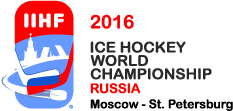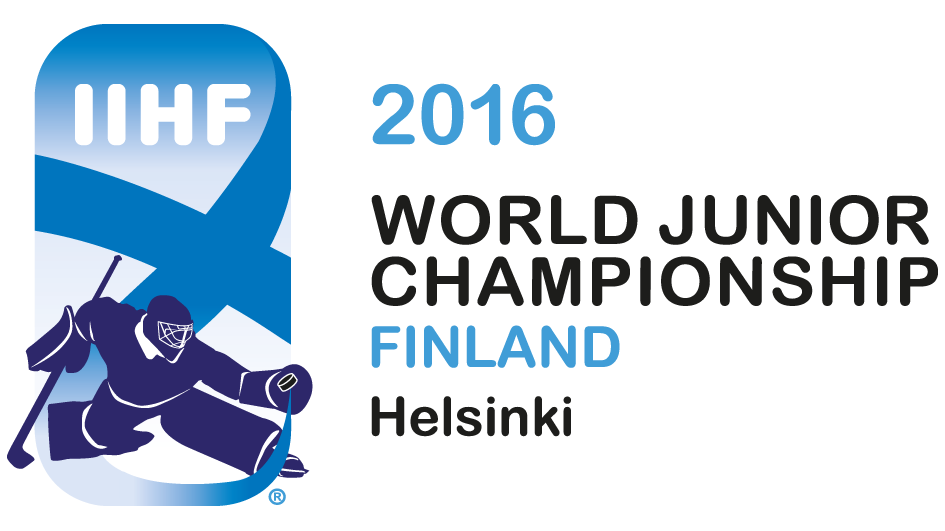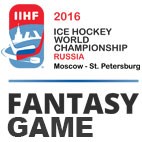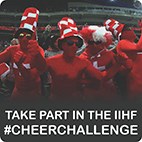Little margin for error
Little margin for error
Russia must meet expectations

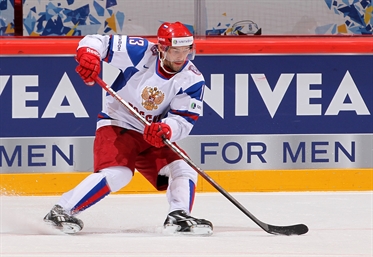 Pavel Datsyuk will captain the Russian national team in Moscow. Photo: Andre Ringuete / HHOF-IIHF Images
Pavel Datsyuk will captain the Russian national team in Moscow. Photo: Andre Ringuete / HHOF-IIHF Images
For an undisputed hockey powerhouse, Russia has endured a long wait to see its team lift a trophy on home ice. You have to go back to the 1986 Soviets and that victory in Moscow. Russia missed out on a medal in St. Petersburg in 2000, took bronze in Moscow in 2007 after losing a semi-final to Finland and famously faltered against the Finns once again in Sochi to miss out on an Olympic medal. This time, home fans hope, the script is about to change and a new golden generation can emerge to join Tikhonov’s team on the list of home-town heroes.
There are grounds for optimism – Oleg Znarok took Russia to the last two World Championship finals and, as usual, he’s able to name a roster with plenty of big-game experience as well as some exciting emerging talent. But there are question marks as well, from the uncertainty about the final choice of forwards to the disappointing return of one win in five this season at Moscow’s new World Championship venue.
Goal
Sergei Bobrovski is the clear pick for the #1 role this time. The Columbus netminder is back in World Championship action for the 3rd time after linking up with the national team last month. Despite some criticism of his performance in a 2-3 home defeat against Finland as Russia concluded a disappointing Euro Hockey Tour season, his vast international experience makes him the clear leader. Rounding off the roster, Znarok has chosen two young KHL goalies, SKA’s Igor Shestyorkin and CSKA’s Ilya Sorokin. The latter, a Metallurg Novokuznetsk graduate like Bobrovski, had a hugely impressive season as he helped his team to the Gagarin Cup final. Aged just 20, he kept Sweden’s Viktor Fasth on the bench for long periods and performed superbly to deal with some high pressure situations. Shestyorkin had less game time in Petersburg, where Finland’s Mikko Koskinen was the key man, but after helping Spartak to MHL success in 2014 he earned a good reputation as a goalie who could be going places. He gets the nod here ahead of Semyon Varlamov.
Defence
Russia’s traditional weakness might be stronger than usual this time around. The return of Slava Voynov to Europe after lifting two Stanley Cups in LA is a real boost for Znarok’s team, even if few would have chosen the uncomfortable path that led the SKA blue liner back across the Atlantic. Voynov took time to rediscover his game in Russia but finished the season strongly and was impressive in the KHL play-offs despite SKA’s loss in the Conference final. SKA team-mate Anton Belov had another solid season and should help form a more reliable defence than Russia has mustered in the past. Another KHL star, Nikita Zaitsev, cemented his position as Russia’s brightest young defensive prospect with an impressive season and post-season at CSKA. His undoubted talents are starting to show in the big games – witness his three goals in the opening three games of the Gagarin Cup final for evidence of greater composure on the big stage. Toronto fans can look forward to a preview of what their new man can do.
There’s further NHL experience in the form of Alexei Yemelin, a reliable blue-liner from Montreal, and Alexei Marchenko of Detroit, an emerging talent who has yet to make an impact on the international stage. And, after naming 28 players on Wednesday, Russia’s management also suggested that four places will be held for possible Trans-Atlantic reinforcements, which could open up a slot for Washington’s Dmitri Orlov depending on the Caps’ Stanley Cup campaign.
Forwards
Russia loves a stellar offence, but this year’s edition has as many questions as answers. Will scratching Ilya Kovalchuk prove to be an error, despite his almost total absence from SKA’s play-off campaign? Will Alexander Radulov’s groin allow him to feature? Who, if any, of Alexander Ovechkin, Yevgeni Kuznetsov, Yevgeni Malkin or Nikolai Kulyomin might feature following the latest round of NHL play-offs? When the puck drops against the Czechs, Russia is expected to have nominated just 11 forwards from a long list of 16, offering some room for manoeuvre on these issues.
Despite the uncertainty, there are positives. Pavel Datsyuk is available from the start to weave his magic. At the age of 35 he’s adamant that this tournament won’t be his swansong, but it will be his last chance to win an international tournament in his native country. His projected partnership with Russia’s second-highest all-time point scorer Sergei Mozyakin has the potential to give defences headaches and finally cement the Metallurg Magnitogorsk captain’s reputation on the international stage. Then there’s the return of the former SKA line of Artemy Panarin, Yevgeni Dadonov and Vadim Shipachyov, so deadly for club and country last season. Whatever the final roster looks like, Russia surely won’t lack for firepower.
Coaching
Everyone knows what to expect from an Oleg Znarok team: work rate, teamwork, commitment and a spiky, combative attitude on and off the ice. While some might question the absence, or likely absence, of big name stars like Kovalchuk, Varlamov, Malkin or Radulov, Znarok’s career shows that he’s not a man to select on reputation. His KHL success came with un-starry rosters; the triumphant sweep to World Championship gold in Minsk, powered by Ovechkin and Malkin, was a rare stellar exception. But with two World Championship campaigns and two World Championship finals as Russia’s head coach, there’s every reason to expect another strong showing from Znarok in Moscow.
Projected results
More than one pundit has suggested that Russia is effectively preparing a team for the three knock-out games and it would be a huge shock if the Red Machine failed to motor through the group stage in serene style. True, the Euro Tour results against the Czechs and the Swedes were unimpressive this season, but with so much expectation around the team it’s clear that Russia is ready to raise its game. The greatest potential obstacle could lie in the decision to leave much of the roster open for the opening game against the Czechs – if Vladimir Vuitek’s men can capitalise on a short bench, the whole tournament could feel very different by Saturday morning. Overall, though, a victory on home ice – so long awaited after the slip-ups in Sochi and at the Worlds in 2007 and 2000 – has to be the target; anything less than a medal is unthinkable.
Back to Overview

